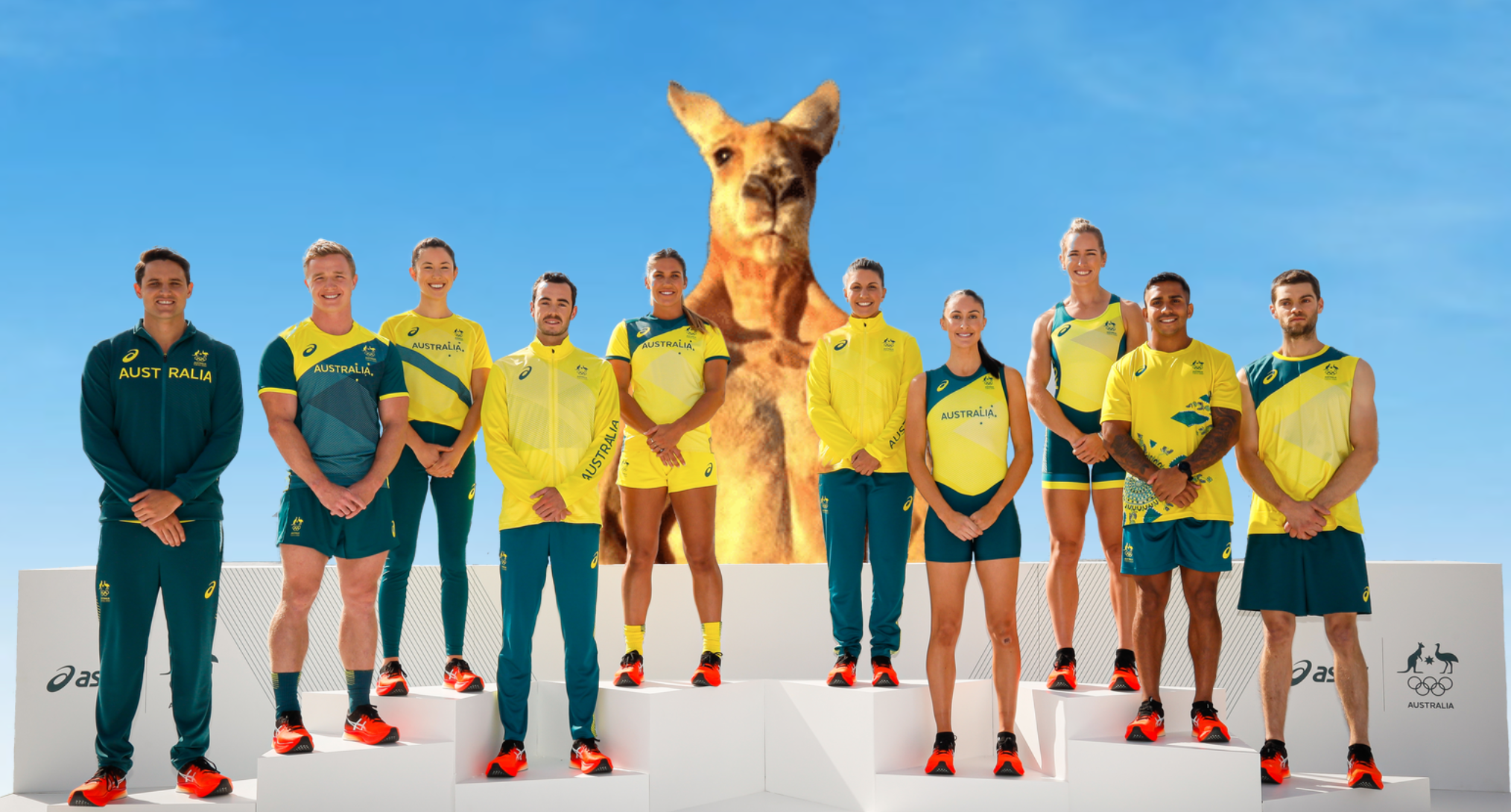Why is every Australian sports team named after a stupid animal?
James Frederiksen gripes.
Like any committed Australian, I was blown away by the achievements of our athletes at the Tokyo Olympics. From Emma McKeon’s heroics in the pool to Logan Martin’s gold in the inaugural BMX Freestyle, Australia’s success in Japan has been a welcome distraction from its COVID capitulation back home.
Despite being enraptured by our Olympians, one nagging detail never failed to break my immersion. It wasn’t Channel 7 interrupting the rhythmic gymnastics with reminders about New South Welshman breaching lockdown orders and ruining everything for everyone, nor was it the schoolyard squabbles between state and federal leaders over who was to blame. It was something so insidious that we hardly notice it, so embedded in the culture that it might seem almost unpatriotic to even dare question it.
When I watched the Boomers lose 97-78 against Team USA, when I watched the Kookaburras barely miss out against the Belgian National Hockey Team in a heartbreaking penalty shoot-out, or when the Olyroos somehow peeled off a 2-0 win against Argentina, the one irrepressible thought on my mind was why does every Australia team need its own nickname? And why are most of them animals??
Before you mention it, sure, there are some exceptions. The Matildas have a solid nickname, and if it doesn’t end up replacing our antiquated national anthem I am happy to see Banjo Patterson’s iconic poem represented somewhere. You, if you’re a contrarian, might also pipe up with other national team nicknames, like the ‘Three Lions’ of England, or the New Zealand ‘All Blacks’.
These, however, are examples of good nicknames; the England logo alludes to their history of lion iconography, and ‘All Blacks’ makes sense because national team nicknames are often just the colour of their playing strip but in a sexy foreign language.
For a start, we don’t even pick good animals. Look around you and all you will see are talentless sports executives butchering the word kangaroo. Every team is a kangaroo. Were we worried that the other countries wouldn’t know who they were playing against? Did we think they would find it confusing that our outfits are green and gold when our flag is red, white and blue?
In this country we have the following as actual nicknames for sports teams: Socceroos, Olyroos, Hockeyroos, Jackaroos, Kangaroos, The Mighty Roos, Volleyroos, and of course, Boomers. Most of them are just the “name of the sport-roos”. If I asked you to guess the name of the Australian Futsal team, I guarantee you would guess correctly because, of course, it’s the Futsalroos…
Kangaroos would be rubbish at most sports. All they are good at is jumping high and running really fast into the front of cars. At least it would make sense if our Olympic track athletes were lovingly known as some variation of the kangaroo. Except of course, they aren’t. Instead, they’re the Australian Flame, which actually might be worse than if they had just called them the Runneroos.
A good team nickname is supposed to represent something. The nomenclature of professional sports is rich with authentic, fan-ascribed monikers that reflect the love that can exist between ordinary people and their sporting heroes. Maradona’s Albiceleste (the White and Sky-Blues) captured Argentinian hearts en route to a stunning 1986 World Cup victory, and the recent EURO 2020 success of the Azzurri (the Blues) achieved similar attention from Italians.
Looking to the upcoming Paralympics, I am particularly excited to tune in and watch our Wheelchair Rugby team compete. At least I don’t have to feel embarrassed cheering on the Steelers to their third consecutive gold medal.
The Paralympics kick off on Channel 7 on 24 August.

